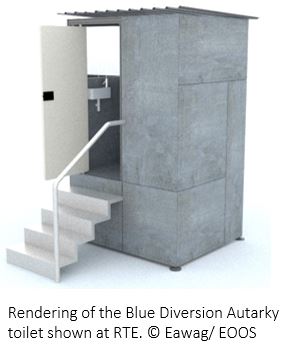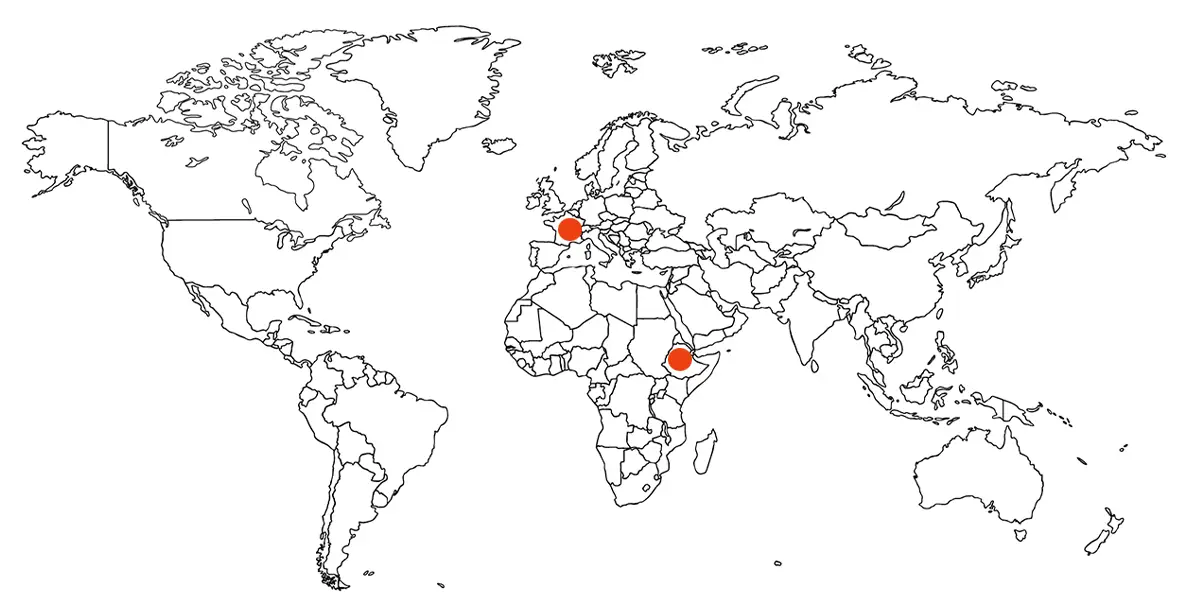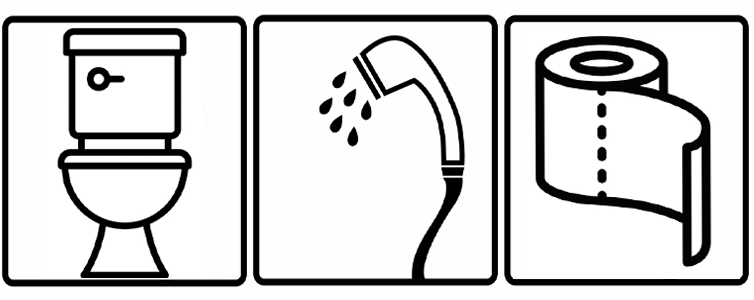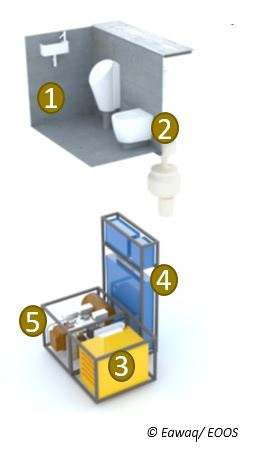Reinvented Toilet Technology in Development
Blue Diversion Autarky | EAWAG
Reinvented Toilet

EAWAG exhibits two products: the Blue Diversion Autarky toilet, which separates and treats urine, solids, and flushing water on site. Urine is chemically stabilized and concentrated. Solids are processed with supercritical water oxidation. The water treatment module combines a biological membrane reactor, activated carbon, and electrolysis to provide safe recycled water. The water treatment is available as a stand-alone handwashing station called Water Wall. Urine and solids treatment can also be provided as separate units.


- Source separation allows for water recycling, nutrient recovery and optimal disinfection
- Modular design: all treatment units can be operated alone or integrated in other systems
- Superstructure allows integration of other treatment units
- Attractive frontend developed with partner EOOS offers hygiene and comfort of modern water flushed toilets
Status of Development

- Water Wall has TRL 6. Field tests in East Africa and Zurich
- Urine module and user interface TRL 4. Field tests ongoing
- Exhibited toilet unit TRL 4, does not include faces module
- Feces module TRL 3. Field tests in the beginning of 2019

Use Cases
- Household or single stall: Current Blue Diversion Autarky Toilet is designed for 10 users per day
- School: Current Water Wall can be used as a hand washing station with three faucets
Product is Appropriate For:

| 10+ | TBD | TBD |
|---|---|---|
| Capacity (flushes/day) | Est. Cost ($/flush/day) | Life Expectancy (Years) |
How Does it Work?
Frontend
Water-flushed urine-diverting pedestal, waterless urinal and hand washing washbasin. Water is recycled.
Urine/Feces Separation
Source-separating unit designed by EOOS. Urine is separated in a urine-diverting pedestal (NoMix toilet). Solids are separated in an Aquatron.
Liquid Processing
Urine processing (3): Urine is chemically stabilized then undergoes passive evaporation, resulting in a solid product that can harvested as fertilizer. Water processing (4): Three units are used for treating the used flushing water and handwashing water: membrane bioreactor with ultrafiltration, activated carbon filter, and electrolysis to produce residual chlorine.
Solids Processing
Feces, toilet paper, and some flushing water are fed into a small-scale, batch-processing supercritical water oxidation reactor developed by the University of Applied Sciences and Arts, Northwestern Switzerland (FHNW).
Solids Processing
Water Wall and urine processing can be operated using solar power. SCWO reactor is still too early in development to assess energy requirements.

Inputs
Does the system require an external source of electricity?
All units require power supply
Does the system require the use of water?
Water is internally recycled. Some water will have to be refilled
Does the system require any other "consumable" inputs?
Calcium hydroxide for the urine stabilization
Outputs
How much energy will be recovered?
None. Energy is used in process
How much water will be recovered?
< 10 liters/day produced. Designed to be recycled, none is intended for discharge
How much fertilizer or other byproducts will be produced?
Nutrient recovery: >70% nitrogen, >80% phosphorus, >70% potassium, and others
Treatment
Solids Yes, supercritical wet oxidation
Liquids Yes, urine (chemical stabilization and evaporation); wash water (membrane bioreactor, ultrafiltration, activated carbon, electrolysis)
Pathogen treatment success? Autarky system will have total pathogen removal
Are chemical processes used? Yes
Are mechanical processes being used? Yes
Are biological processes being used? Yes
Does the system require any off-site or additional processing? No
Business Considerations
Estimated daily operating cost (not available)
Estimated capex (not available)
Size Blue Diversion Autarky Toilet: L 2.2m x W 1.9m x H 3.4m (without stairs) Water Wall: L 1.9m x W 0.9m x H 2.3m
Maintenance Requirements Water refill, fertilizer harvest from urine and feces treatment, supply of chemical reagent
Life expectancy 10 years
